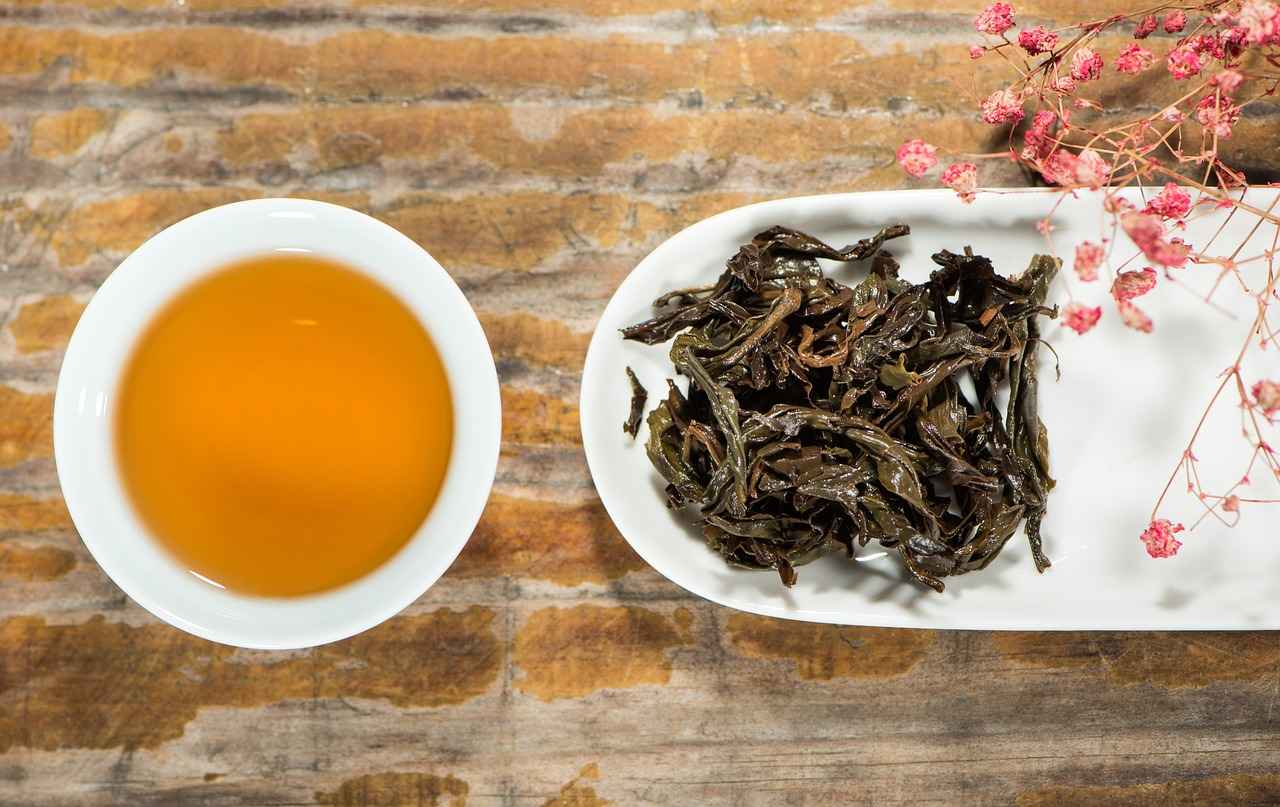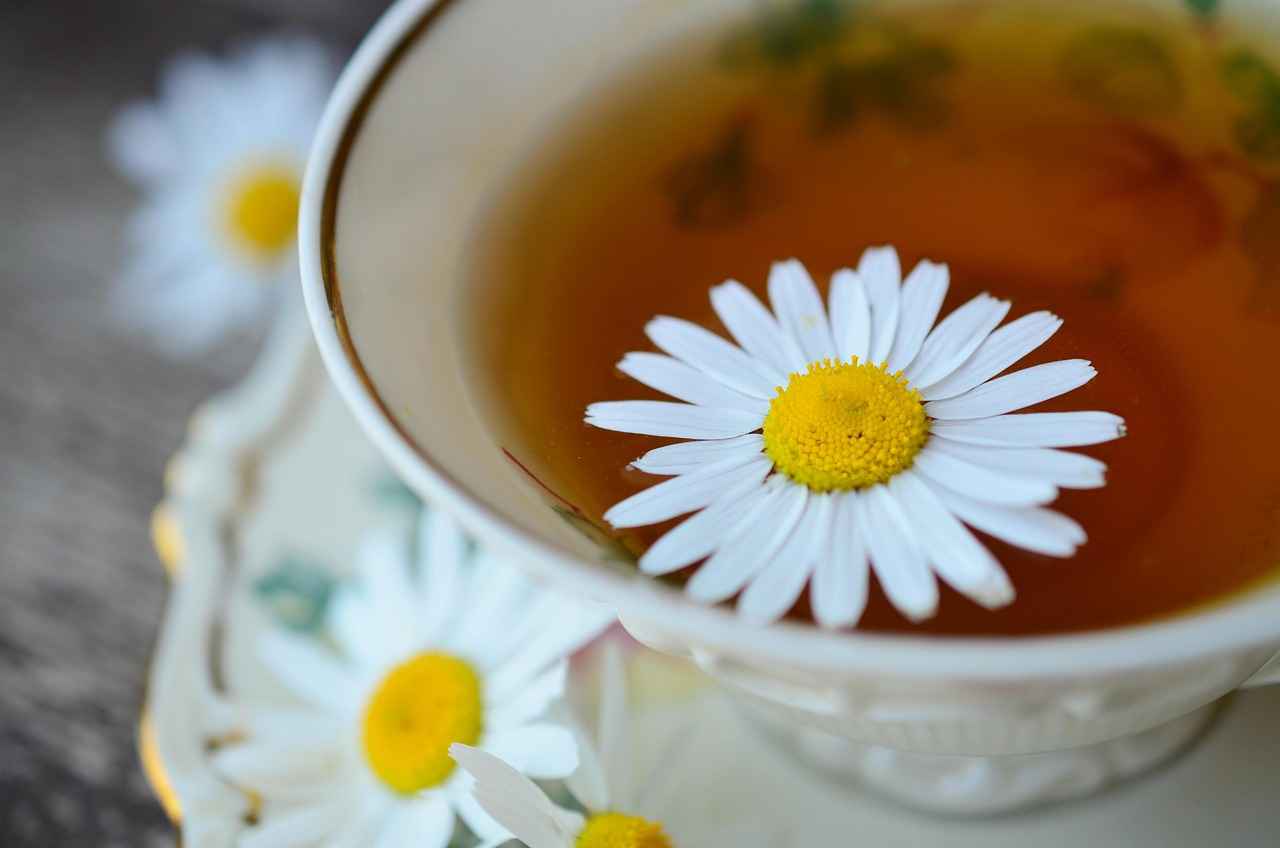This article delves into the benefits of chamomile tea extract, particularly its role in enhancing sleep quality. Chamomile has been cherished for centuries due to its calming properties, and modern research supports its effectiveness for sleep support. Understanding its properties, uses, and scientific evidence will empower you to incorporate this herbal remedy into your nightly routine.
The Science Behind Chamomile Tea Extract
Chamomile tea extract is celebrated for its soothing effects, primarily attributed to the active compound apigenin. This flavonoid binds to specific receptors in the brain, promoting relaxation and facilitating sleep onset. Studies have shown that chamomile can significantly reduce the time it takes to fall asleep, making it a valuable ally for those struggling with insomnia.
Health Benefits of Chamomile Tea Extract
- Anti-Inflammatory Properties: Chamomile tea extract helps reduce inflammation, which can improve sleep quality by alleviating discomfort that disrupts rest.
- Antioxidant Effects: The antioxidants in chamomile combat oxidative stress, contributing to overall health and better sleep.
How to Use Chamomile Tea Extract
Incorporating chamomile tea extract into your routine is straightforward. You can brew a cup of chamomile tea or opt for supplements for a more concentrated dose. For brewing:
1. Boil water and let it cool for a minute.2. Add chamomile tea bags or dried flowers.3. Steep for 5-10 minutes.4. Strain and enjoy, optionally sweetened with honey.
Potential Side Effects and Considerations
While chamomile tea extract is generally safe, some individuals may experience allergic reactions, particularly those allergic to plants in the Asteraceae family. It’s advisable to consult a healthcare provider if you are on medication, as chamomile can interact with certain drugs.
Conclusion: Embracing Chamomile for Better Sleep
In summary, chamomile tea extract offers a natural solution for enhancing sleep quality. By understanding its benefits and proper usage, you can effectively incorporate it into your nighttime routine for improved rest and overall well-being.

The Science Behind Chamomile Tea Extract
Chamomile tea extract has gained significant attention for its potential to promote relaxation and improve sleep quality. The key to its calming effects lies in its active compounds, particularly apigenin, a flavonoid that interacts with specific receptors in the brain. This article explores the biochemical mechanisms that underpin the sleep-supportive properties of chamomile tea extract.
Chamomile’s ability to induce calmness is primarily attributed to its interaction with the GABA receptors in the brain. GABA (gamma-aminobutyric acid) is a neurotransmitter that plays a crucial role in regulating neuronal excitability throughout the nervous system. By enhancing the activity of GABA, chamomile tea extract can promote a state of relaxation, making it easier for individuals to unwind and prepare for sleep.
Moreover, chamomile tea extract is rich in antioxidants, which help combat oxidative stress in the body. This oxidative stress can lead to various health issues, including sleep disturbances. By neutralizing free radicals, the antioxidants in chamomile may contribute to improved sleep quality and overall well-being.
In addition to its biochemical properties, chamomile has been used for centuries in traditional medicine as a natural remedy for insomnia and anxiety. Its historical use underscores the plant’s long-standing reputation as a sleep aid, supported by modern scientific research.
For optimal benefits, it is recommended to consume chamomile tea extract regularly. Whether in the form of a soothing cup of tea or as a concentrated supplement, incorporating chamomile into your nightly routine may enhance your ability to achieve restful sleep. Understanding the science behind chamomile tea extract not only highlights its efficacy but also empowers individuals to make informed choices about their sleep health.
In conclusion, chamomile tea extract stands out as a natural option for those seeking to improve their sleep quality. By delving into the science of its active compounds and their effects on the body, we can appreciate the profound impact chamomile can have on our nightly rest.

Health Benefits of Chamomile Tea Extract
Chamomile tea extract is not only celebrated for its sleep-inducing qualities but also for its wide array of health benefits. This remarkable herbal remedy is packed with anti-inflammatory and antioxidant properties that contribute significantly to overall well-being.
Anti-Inflammatory Properties
One of the standout benefits of chamomile tea extract is its anti-inflammatory effects. Chronic inflammation is linked to numerous health issues, including heart disease, diabetes, and even certain cancers. By incorporating chamomile tea extract into your daily routine, you may help reduce inflammation in the body, thereby promoting a healthier lifestyle. Studies have shown that the flavonoids present in chamomile, particularly apigenin, can inhibit inflammatory pathways, leading to a decrease in symptoms associated with inflammatory conditions.
How Inflammation Affects Sleep
Understanding the connection between inflammation and sleep quality is crucial. Inflammatory responses can lead to insomnia and restless nights. By alleviating inflammation, chamomile tea extract can indirectly enhance sleep quality, allowing individuals to experience deeper and more restorative rest.
Antioxidant Effects
In addition to its anti-inflammatory properties, chamomile tea extract is rich in antioxidants. These compounds play a vital role in neutralizing free radicals in the body, which can cause oxidative stress and damage to cells. Regular consumption of chamomile tea extract may help improve overall health by reducing oxidative stress, which is linked to various chronic diseases.
Conclusion
In summary, chamomile tea extract offers a multitude of health benefits that extend beyond sleep support. Its anti-inflammatory and antioxidant properties contribute to improved overall health, making it a valuable addition to anyone’s wellness routine. By embracing chamomile tea extract, individuals can take proactive steps toward enhancing their well-being and quality of life.
Anti-Inflammatory Properties
Chamomile tea extract has garnered attention not only for its calming properties but also for its remarkable anti-inflammatory effects. This section explores how these effects can significantly impact sleep quality, particularly for individuals suffering from conditions that interfere with restful slumber.
Inflammation is a natural response of the body to injury or infection; however, chronic inflammation can lead to various health issues, including sleep disturbances. Research indicates that elevated levels of inflammatory markers can contribute to conditions such as insomnia and other sleep-related disorders. By addressing inflammation, chamomile tea extract may help alleviate these disruptive conditions, paving the way for improved sleep.
One of the key components of chamomile, apigenin, has been shown to possess anti-inflammatory properties. This flavonoid binds to specific receptors in the brain, promoting relaxation and reducing anxiety, which can be beneficial for those struggling to fall asleep. Furthermore, by mitigating inflammation, chamomile tea extract may also help in reducing pain associated with conditions like arthritis, which often disrupts sleep.
Additionally, studies suggest that regular consumption of chamomile tea extract can lead to lower levels of C-reactive protein (CRP), a marker of inflammation in the body. Lower CRP levels are associated with better sleep quality, as they indicate a reduction in inflammatory processes that can disturb sleep patterns.
In summary, the anti-inflammatory properties of chamomile tea extract not only support overall health but also play a crucial role in enhancing sleep quality. By addressing the underlying causes of sleep disruption, chamomile serves as a natural remedy for those seeking a more restful night.
How Inflammation Affects Sleep
Understanding the relationship between inflammation and sleep disruption is essential for improving overall health and well-being. Inflammation is a natural response of the body to injury or infection, but when it becomes chronic, it can lead to various health issues, including sleep disturbances.
Chronic inflammation can disrupt the body’s natural sleep-wake cycle, leading to conditions such as insomnia. Research indicates that inflammatory markers, such as cytokines, can interfere with the production of sleep-regulating hormones, making it difficult for individuals to fall asleep or stay asleep throughout the night.
Moreover, the discomfort associated with inflammatory conditions, such as arthritis or chronic pain syndromes, can further exacerbate sleep issues. When the body is in pain, it is less likely to achieve the deep, restorative sleep necessary for recovery and rejuvenation. This creates a vicious cycle, as poor sleep can, in turn, lead to increased inflammation.
Fortunately, natural remedies like chamomile tea extract have been shown to help mitigate the effects of inflammation on sleep. Chamomile contains apigenin, a compound that binds to specific receptors in the brain, promoting relaxation and sleepiness. By reducing inflammation and providing a calming effect, chamomile can help improve sleep quality and duration.
Incorporating chamomile tea into your evening routine may offer a simple yet effective solution for those struggling with sleep disruption due to inflammation. Not only does it promote relaxation, but its anti-inflammatory properties can also help address the underlying causes of sleep disturbances.
In summary, understanding how inflammation affects sleep is crucial for those seeking better rest. By utilizing natural remedies like chamomile, individuals can combat inflammation and enhance their sleep quality, leading to improved overall health.
Chamomile in Traditional Medicine
Throughout history, chamomile has been celebrated for its remarkable healing properties across various cultures. This gentle herb, derived from the flowers of the Matricaria chamomilla plant, has been utilized for centuries, particularly in traditional medicine, to promote relaxation and support sleep. The following sections delve into the historical applications of chamomile and its relevance in contemporary sleep support.
- Ancient Egypt: Chamomile was revered by the Egyptians, who considered it a sacred herb. They used it to treat various ailments, including fevers and digestive issues, and it played a significant role in their religious rituals.
- Greek and Roman Traditions: The ancient Greeks and Romans valued chamomile for its soothing properties. Renowned physician Hippocrates documented its use for treating anxiety and promoting sleep, while Pliny the Elder recommended it for various health issues.
- Traditional Chinese Medicine: In TCM, chamomile is often combined with other herbs to create calming teas aimed at reducing stress and enhancing sleep quality, showcasing its versatility in herbal formulations.
- European Folk Medicine: Chamomile has long been a staple in European folk medicine, where it was used to alleviate insomnia, digestive disorders, and even skin irritations. Its calming effects were recognized and passed down through generations.
In modern times, the use of chamomile has evolved but remains rooted in its historical applications. Today, chamomile tea is widely consumed as a natural remedy for insomnia and anxiety, with many people turning to it as a gentle, herbal alternative to pharmaceuticals. The active compounds in chamomile, particularly apigenin, are believed to bind to specific receptors in the brain, promoting a sense of calm and facilitating sleep.
As we embrace the wisdom of traditional medicine, it becomes clear that chamomile not only offers a bridge between ancient practices and modern needs but also highlights the importance of natural remedies in supporting our well-being.
Antioxidant Effects
The antioxidant properties of chamomile tea extract are pivotal in promoting overall health and well-being. Antioxidants are compounds that help combat oxidative stress, which is caused by free radicals in the body. This section will explore the significant impact of antioxidants in chamomile tea extract on sleep quality and overall health.
Oxidative stress can lead to a myriad of health issues, including sleep disturbances. By reducing oxidative stress, antioxidants in chamomile tea extract may help improve sleep quality and duration. Studies have shown that individuals who consume antioxidant-rich foods and beverages, such as chamomile tea, often experience better sleep patterns. This is primarily due to the ability of antioxidants to neutralize free radicals, thereby reducing inflammation and promoting relaxation.
Furthermore, research indicates that the active compounds in chamomile, particularly apigenin, not only provide calming effects but also possess strong antioxidant properties. These compounds work synergistically to enhance the body’s natural defenses against oxidative damage, which can disrupt sleep. By alleviating stress and promoting a calm state, chamomile tea extract can create a more conducive environment for restful sleep.
Incorporating chamomile tea extract into your nightly routine could be a simple yet effective strategy for improving sleep quality. Whether consumed as a tea or taken in supplement form, the benefits of its antioxidant properties are undeniable. Not only does chamomile tea extract support better sleep, but it also contributes to overall health by reducing the risk of chronic diseases associated with oxidative stress.
In conclusion, the antioxidant effects of chamomile tea extract are essential for enhancing sleep quality. By mitigating oxidative stress, this natural remedy not only promotes relaxation but also supports overall health, making it a valuable addition to anyone’s wellness regimen.

How to Use Chamomile Tea Extract
Incorporating chamomile tea extract into your routine can be both simple and effective. This herbal remedy is widely recognized for its calming properties, making it a popular choice for those seeking better sleep and relaxation. Below are some practical tips on how to use chamomile tea extract, including recommended dosages and preparation methods.
| Method | Description | Dosage |
|---|---|---|
| Brewing Tea | Steep dried chamomile flowers in hot water to create a soothing tea. | 1-2 teaspoons of dried flowers per cup of water. |
| Chamomile Extract | Use liquid extracts that are concentrated for a more potent effect. | Typically 1-2 ml before bedtime. |
| Capsules | Take chamomile in capsule form for convenience. | Follow the manufacturer’s instructions, usually 200-400 mg. |
To prepare chamomile tea, follow these simple steps:
- Boil water and let it cool for a minute.
- Add the dried chamomile flowers to a teapot or cup.
- Pour the hot water over the flowers and steep for 5-10 minutes.
- Strain the tea and enjoy, optionally sweetening it with honey or lemon.
For those who prefer a more concentrated form, chamomile tea extract supplements are available. These can be a convenient option for individuals who are always on the go. However, it is essential to consult with a healthcare provider before starting any new supplement regimen, especially if you are taking other medications.
In conclusion, incorporating chamomile tea extract into your daily routine can be a straightforward way to enhance your relaxation and sleep quality. By following the recommended methods and dosages, you can effectively harness the soothing benefits of this wonderful herb.
Brewing the Perfect Cup
To fully enjoy the soothing properties of chamomile tea extract, it is essential to brew it correctly. The following step-by-step guide will help you prepare a cup that maximizes both flavor and health benefits.
- Choose Quality Chamomile: Start with high-quality chamomile flowers, either dried or in tea bags. Look for organic options to avoid pesticides and ensure purity.
- Measure the Right Amount: Use approximately 1 tablespoon of dried chamomile flowers or one tea bag per cup (about 8 ounces) of water. Adjust the quantity based on your taste preference.
- Boil Water: Heat fresh, filtered water to a rolling boil. The ideal temperature for brewing chamomile tea is between 200°F to 212°F (93°C to 100°C).
- Steep the Tea: Pour the boiling water over the chamomile flowers or tea bag. Cover the cup to trap the steam and enhance the infusion. Allow it to steep for about 5 to 10 minutes, depending on how strong you like your tea.
- Strain and Serve: If using loose flowers, strain the tea into another cup. If using a tea bag, simply remove it. You can enjoy the tea as is or add a touch of honey or lemon for added flavor.
- Enjoy Your Tea: Sip slowly and allow the calming effects to take over, helping you relax and unwind.
By following these steps, you can ensure that each cup of chamomile tea extract is brewed to perfection, providing you with the maximum benefits of this wonderful herbal remedy.
Chamomile Tea Extract Supplements
have become increasingly popular for those looking for a more concentrated form of the benefits associated with traditional chamomile tea. This section will explore the various advantages of using these supplements and important considerations to keep in mind.
One of the primary benefits of chamomile tea extract supplements is their concentration. Unlike brewed tea, which can vary in potency based on steeping time and temperature, supplements provide a standardized dose of active compounds, primarily apigenin. This consistency can be particularly advantageous for individuals seeking reliable sleep support or those aiming to manage anxiety levels.
- Convenience: Supplements are easy to take and can be incorporated into daily routines without the need for brewing.
- Higher Potency: Extracts often contain higher concentrations of beneficial compounds compared to a cup of tea.
- Longer Shelf Life: Supplements typically have a longer shelf life than brewed tea, making them a practical choice for long-term use.
However, there are also considerations to keep in mind when opting for chamomile tea extract supplements. It is essential to be aware of potential side effects and interactions with medications. Some individuals may experience allergic reactions, particularly if they have sensitivities to plants in the Asteraceae family, which includes ragweed and daisies.
Furthermore, while supplements offer convenience, they lack the ritualistic aspect of brewing tea, which many find calming and beneficial for their sleep routine. It is crucial to weigh these benefits against personal preferences and health conditions.
In conclusion, chamomile tea extract supplements can be an effective alternative for individuals seeking concentrated benefits. However, it is advisable to consult with a healthcare provider to ensure safe usage, especially for those with pre-existing health conditions or those taking other medications.

Potential Side Effects and Considerations
While chamomile tea extract is generally considered safe for most individuals, it is essential to be aware that some people may experience side effects. This section outlines potential risks and identifies who should exercise caution when using chamomile tea extract.
- Allergic Reactions: Some individuals may have an allergy to chamomile, which can lead to symptoms such as skin rashes, itching, or even more severe reactions like difficulty breathing. If you have a known allergy to plants in the Asteraceae family, such as ragweed or marigolds, it is advisable to avoid chamomile.
- Drug Interactions: Chamomile tea extract can interact with certain medications, particularly blood thinners, sedatives, and anti-inflammatory drugs. These interactions can either enhance or diminish the effectiveness of the medications. It is crucial to consult with a healthcare provider before incorporating chamomile tea extract into your routine if you are taking any medications.
- Gastrointestinal Issues: Some users may experience mild gastrointestinal discomfort, such as nausea or vomiting. If you notice any digestive issues after consuming chamomile, consider reducing the dosage or discontinuing use.
- Pregnancy and Breastfeeding: Pregnant or breastfeeding women should consult their healthcare provider before using chamomile tea extract, as its effects during these periods are not fully understood.
In summary, while chamomile tea extract offers numerous health benefits, it is vital to be aware of potential side effects and interactions. By understanding these considerations, individuals can make informed decisions about incorporating chamomile into their wellness routines.
Allergic Reactions
Allergic Reactions to Chamomile Tea ExtractChamomile tea extract is widely celebrated for its calming properties and health benefits. However, it is crucial to recognize that some individuals may experience to this herbal remedy. Understanding the symptoms and taking precautions can help ensure a safe experience with chamomile.
Symptoms of Allergic Reactions
- Skin Reactions: Hives, rashes, or itching may occur, indicating an allergic response.
- Respiratory Issues: Symptoms such as wheezing, difficulty breathing, or nasal congestion can arise in sensitive individuals.
- Gastrointestinal Distress: Nausea, vomiting, or diarrhea may be signs of an allergy.
- Anaphylaxis: In rare cases, severe allergic reactions can lead to anaphylaxis, a life-threatening condition that requires immediate medical attention.
Who is at Risk?
Individuals with known allergies to plants in the Asteraceae family, such as ragweed, marigolds, and daisies, are particularly at risk for chamomile allergies. If you have a history of these allergies, it is advisable to approach chamomile tea extract with caution.
How to Safely Approach Chamomile Consumption
To minimize the risk of allergic reactions, consider the following guidelines:
- Start with Small Amounts: If you are trying chamomile for the first time, begin with a small dose to monitor your body’s response.
- Consult a Healthcare Provider: Before adding chamomile to your routine, especially if you have existing allergies or are taking medications, consult with a healthcare professional.
- Discontinue Use Immediately: If you experience any allergic symptoms after consuming chamomile, stop usage and seek medical advice.
In conclusion, while chamomile tea extract can be a beneficial addition to your wellness routine, it is essential to be aware of potential allergic reactions. By understanding the symptoms and taking precautions, you can safely enjoy the calming effects of chamomile.
Drug Interactions
Drug Interactions with Chamomile Tea ExtractChamomile tea extract is widely recognized for its calming effects and numerous health benefits. However, it is essential to be aware that chamomile tea extract can interact with certain medications, which may affect how these drugs work in the body. This section aims to highlight the potential interactions and the importance of consulting healthcare providers before incorporating chamomile into your routine.
Chamomile contains compounds that may enhance the effects of certain medications, particularly those that have a sedative effect. For instance, if you are taking benzodiazepines or other sleep aids, combining them with chamomile tea extract may lead to increased drowsiness or sedation. Additionally, chamomile can influence the metabolism of various drugs, which can either enhance or diminish their effectiveness.
- Blood Thinners: Chamomile may have a mild anticoagulant effect, which can interact with blood-thinning medications such as warfarin. This interaction could increase the risk of bleeding.
- Antidepressants: Some studies suggest that chamomile may amplify the effects of certain antidepressants, potentially leading to increased side effects.
- Immunosuppressants: For individuals on medications that suppress the immune system, chamomile may interfere with their effectiveness, posing risks to those with autoimmune conditions.
Given these potential interactions, it is crucial to consult your healthcare provider before using chamomile tea extract, especially if you are on medication. Your healthcare provider can help you assess any risks and determine the appropriate dosage or alternative options.
In summary, while chamomile tea extract can be a beneficial addition to your health regimen, understanding its interactions with medications is vital for ensuring safety and efficacy. Always prioritize open communication with your healthcare provider to make informed decisions about your health.

Conclusion: Embracing Chamomile for Better Sleep
In summary, the beneficial properties of chamomile tea extract make it a valuable ally for those seeking improved sleep quality. Its natural calming effects, primarily attributed to the compound apigenin, help prepare the body for rest by promoting relaxation and reducing anxiety. By incorporating chamomile tea extract into your nightly routine, you can create a soothing environment conducive to sleep.
Understanding how to effectively use chamomile tea extract is essential for maximizing its sleep-supportive benefits. Whether consumed as a tea or in supplement form, the key is to find a method that fits your lifestyle. For instance, brewing a cup of chamomile tea about 30 minutes before bedtime can signal your body that it’s time to wind down. This ritual can enhance your overall sleep experience.
Moreover, the health benefits of chamomile tea extend beyond sleep support. Its anti-inflammatory and antioxidant properties contribute to overall well-being, which can further enhance sleep quality. By alleviating inflammation and oxidative stress, chamomile tea extract can help address underlying issues that may disrupt sleep.
However, it’s important to be aware of potential side effects. While chamomile tea extract is generally considered safe, individuals with allergies to plants in the Asteraceae family should exercise caution. Additionally, consulting with a healthcare provider is advisable for those on medication, as chamomile may interact with certain drugs.
In conclusion, embracing chamomile tea extract as a natural sleep aid can lead to significant improvements in your nightly rest. By understanding its benefits, proper usage, and potential precautions, you can harness the full power of chamomile to enhance both your sleep and overall health.














